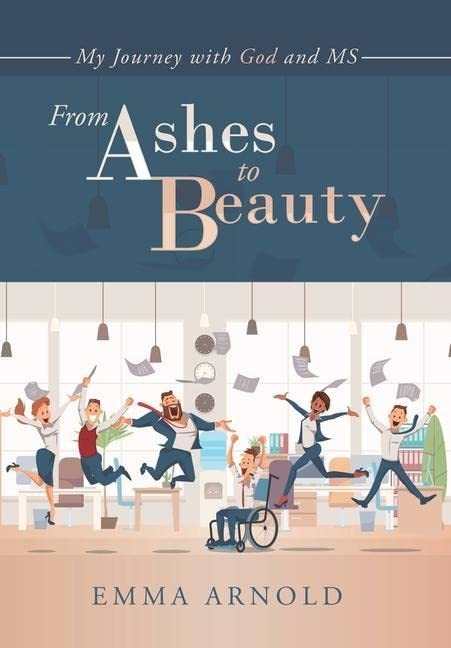From Ashes to Beauty
My Journey with God and MS
Faith and chronic illness shape the inspiring memoir From Ashes to Beauty.
Written with the flavor of a tract, Emma Arnold’s concise spiritual memoir From Ashes to Beauty: My Journey with God and MS explores the intersection of multiple sclerosis and Christianity in her life.
Arnold’s mother was Indian; her father was of Scottish descent. She grew up in a poor London council estate. In tidy form, the book covers her early influences and pivotal events that shaped her life, seeking miracles and gifts among ordinary experiences. There are periods of denial, spiritual searching, and physical trials as well. At times, the book’s self-reflection holds the audience at a distance, though, as when Arnold admonishes her younger self for her naïveté and thanks God for the wonderful husband, two supportive children, and continued health that she possesses.
Though it involves some sentimentality, the prose also has an appealing vulnerable, confessional quality, as when Arnold self-describes as “slightly overweight, working shifts, brown … and what’s more, a Christian” and recalls her related struggle to find a romantic partner: “I had a big battle with singleness and being single…. I felt there was no hope for me.” Such admissions are juxtaposed to motivational verses from the Bible, which become a pervasive element in the text. Indeed, each chapter commences with biblical lines; internally, such quotes are used to break up the text, provide context, or highlight certain thoughts. At times, the book seems to be documenting Arnold’s favorite lines alone.
Though its early portions seem most concerned with introducing and contextualizing MS, as the book progresses, its focus on Christianity takes over; Arnold’s descriptions of life with MS become brief, vague, and amorphous. Different churches, religious retreats, and inspirational pastors are covered; the audience’s unanswered questions about Arnold’s experiences of MS are effectively dismissed by an unsatisfying blanket description of Arnold’s disease being “very quiet.” What this quiet entailed—and what loud periods look like—is not addressed. And in the end, the book’s final chapter is its most elucidating, though it is also narrated by others—Arnold’s husband (who has since passed) and her children, who discuss how they experience her MS in poignant, somber terms.
Experiences with religion and chronic illness frame the often inspiring memoir From Ashes to Beauty, which delivers a message of hope even as it leaves multiple questions unanswered.
Reviewed by
Willem Marx
Disclosure: This article is not an endorsement, but a review. The publisher of this book provided free copies of the book and paid a small fee to have their book reviewed by a professional reviewer. Foreword Reviews and Clarion Reviews make no guarantee that the publisher will receive a positive review. Foreword Magazine, Inc. is disclosing this in accordance with the Federal Trade Commission’s 16 CFR, Part 255.

